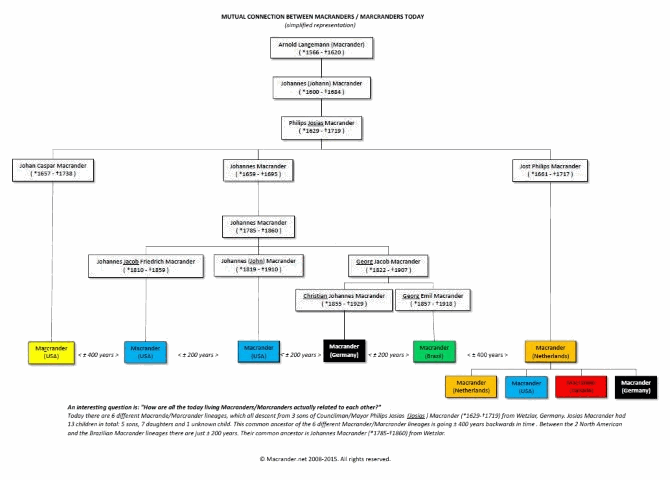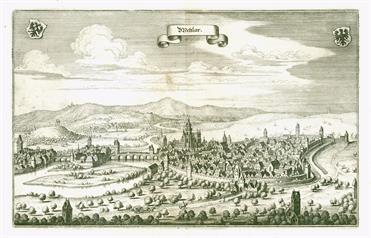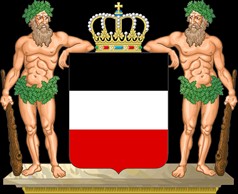Wappen Waldeck Coat of Arms Waldeck wapen Waldeck Wappen Waldeck Coat of Arms Waldeck wapen Waldeck Wappen Waldeck Coat of Arms Waldeck wapen Waldeck Wappen Waldeck Coat of Arms Waldeck wapen Waldeck Wappen Waldeck Coat of Arms Waldeck wapen Waldeck Wappen Waldeck Coat of Arms Waldeck wapen Waldeck Wappen Waldeck Coat of Arms Waldeck wapen Waldeck Wappen Waldeck Coat of Arms Waldeck wapen Waldeck Wappen Waldeck Coat of Arms Waldeck wapen Waldeck Wappen Waldeck Coat of Arms Waldeck wapen Waldeck Wappen Waldeck Coat of Arms Waldeck wapen Waldeck Wappen Waldeck Coat of Arms Waldeck wapen Waldeck Wappen Waldeck Coat of Arms Waldeck wapen Waldeck Wappen Waldeck Coat of Arms Waldeck wapen Waldeck Wappen Waldeck Coat of Arms Waldeck wapen Waldeck Wappen Waldeck Coat of Arms Waldeck wapen Waldeck Wappen Waldeck Coat of Arms Waldeck wapen Waldeck Wappen Waldeck Coat of Arms Waldeck wapen Waldeck Wappen Waldeck Coat of Arms Waldeck wapen Waldeck Wappen Waldeck Coat of Arms Waldeck wapen Waldeck Wappen Waldeck Coat of Arms Waldeck wapen Waldeck Wappen Waldeck Coat of Arms Waldeck wapen Waldeck Wappen Waldeck Coat of Arms Waldeck wapen Waldeck Wappen Waldeck Coat of Arms Waldeck wapen Waldeck Wappen Waldeck Coat of Arms Waldeck wapen Waldeck Wappen Waldeck Coat of Arms Waldeck wapen Waldeck Wappen Waldeck Coat of Arms Waldeck wapen Waldeck Wappen Waldeck Coat of Arms Waldeck wapen Waldeck Wappen Waldeck Coat of Arms Waldeck wapen Waldeck Wappen Waldeck Coat of Arms Waldeck wapen Waldeck Wappen Waldeck Coat of Arms Waldeck wapen Waldeck Wappen Waldeck Coat of Arms Waldeck wapen Waldeck Wappen Waldeck Coat of Arms Waldeck wapen Waldeck Wappen Waldeck Coat of Arms Waldeck wapen Waldeck Wappen Waldeck Coat of Arms Waldeck wapen Waldeck Wappen Waldeck Coat of Arms Waldeck wapen Waldeck Wappen Waldeck Coat of Arms Waldeck wapen Waldeck Wappen Waldeck Coat of Arms Waldeck wapen Waldeck Wappen Waldeck Coat of Arms Waldeck wapen Waldeck Wappen Waldeck Coat of Arms Waldeck wapen Waldeck Wappen Waldeck Coat of Arms Waldeck wapen Waldeck Wappen Waldeck Coat of Arms Waldeck wapen Waldeck Wappen Waldeck Coat of Arms Waldeck wapen Waldeck Wappen Waldeck Coat of Arms Waldeck wapen Waldeck Wappen Waldeck Coat of Arms Waldeck wapen Waldeck Wappen Waldeck Coat of Arms Waldeck wapen Waldeck Wappen Waldeck Coat of Arms Waldeck wapen Waldeck Wappen Waldeck Coat of Arms Waldeck wapen Waldeck Wappen Waldeck Coat of Arms Waldeck wapen Waldeck Wappen Waldeck Coat of Arms Waldeck wapen Waldeck Wappen Waldeck Coat of Arms Waldeck wapen Waldeck Wappen Waldeck Coat of Arms Waldeck wapen Waldeck Wappen Waldeck Coat of Arms Waldeck wapen Waldeck Wappen Waldeck Coat of Arms Waldeck wapen Waldeck Wappen Waldeck Coat of Arms Waldeck wapen Waldeck Wappen Waldeck Coat of Arms Waldeck wapen Waldeck Wappen Waldeck Coat of Arms Waldeck wapen Waldeck Wappen Waldeck Coat of Arms Waldeck wapen Waldeck Wappen Waldeck Coat of Arms Waldeck wapen Waldeck Wappen Waldeck Coat of Arms Waldeck wapen Waldeck Wappen Waldeck Coat of Arms Waldeck wapen Waldeck Wappen Waldeck Coat of Arms Waldeck wapen Waldeck Wappen Waldeck Coat of Arms Waldeck wapen Waldeck Wappen Waldeck Coat of Arms Waldeck wapen Waldeck Wappen Waldeck Coat of Arms Waldeck wapen Waldeck Wappen Waldeck Coat of Arms Waldeck wapen Waldeck Wappen Waldeck Coat of Arms Waldeck wapen Waldeck Wappen Waldeck Coat of Arms Waldeck wapen Waldeck Wappen Waldeck Coat of Arms Waldeck wapen Waldeck Wappen Waldeck Coat of Arms Waldeck wapen Waldeck Wappen Waldeck Coat of Arms Waldeck wapen Waldeck Wappen Waldeck Coat of Arms Waldeck wapen Waldeck Wappen Waldeck Coat of Arms Waldeck wapen Waldeck Wappen Waldeck Coat of Arms Waldeck wapen Waldeck Wappen Waldeck Coat of Arms Waldeck wapen Waldeck Wappen Waldeck Coat of Arms Waldeck wapen Waldeck Wappen Waldeck Coat of Arms Waldeck wapen Waldeck Wappen Waldeck Coat of Arms Waldeck wapen Waldeck Wappen Waldeck Coat of Arms Waldeck wapen Waldeck Wappen Waldeck Coat of Arms Waldeck wapen Waldeck Wappen Waldeck Coat of Arms Waldeck wapen Waldeck Wappen Waldeck Coat of Arms Waldeck wapen Waldeck Wappen Waldeck Coat of Arms Waldeck wapen Waldeck Wappen Waldeck Coat of Arms Waldeck wapen Waldeck Wappen Waldeck Coat of Arms Waldeck wapen Waldeck Wappen Waldeck Coat of Arms Waldeck wapen Waldeck Wappen Waldeck Coat of Arms Waldeck wapen Waldeck Wappen Waldeck Coat of Arms Waldeck wapen Waldeck Wappen Waldeck Coat of Arms Waldeck wapen Waldeck Wappen Waldeck Coat of Arms Waldeck wapen Waldeck Wappen Waldeck Coat of Arms Waldeck wapen Waldeck Wappen Waldeck Coat of Arms Waldeck wapen Waldeck Wappen Waldeck Coat of Arms Waldeck wapen Waldeck Wappen Waldeck Coat of Arms Waldeck wapen Waldeck Wappen Waldeck Coat of Arms Waldeck wapen Waldeck Wappen Waldeck Coat of Arms Waldeck wapen Waldeck Wappen Waldeck Coat of Arms Waldeck wapen Waldeck Wappen Waldeck Coat of Arms Waldeck wapen Waldeck Wappen Waldeck Coat of Arms Waldeck wapen Waldeck Wappen Waldeck Coat of Arms Waldeck wapen Waldeck Wappen Waldeck Coat of Arms Waldeck wapen Waldeck Wappen Waldeck Coat of Arms Waldeck wapen Waldeck Wappen Waldeck Coat of Arms Waldeck wapen Waldeck Wappen Waldeck Coat of Arms Waldeck wapen Waldeck Wappen Waldeck Coat of Arms Waldeck wapen Waldeck Wappen Waldeck Coat of Arms Waldeck wapen Waldeck Wappen Waldeck Coat of Arms Waldeck wapen Waldeck Wappen Waldeck Coat of Arms Waldeck wapen Waldeck Wappen Waldeck Coat of Arms Waldeck wapen Waldeck Wappen Waldeck Coat of Arms Waldeck wapen Waldeck Wappen Waldeck Coat of Arms Waldeck wapen Waldeck Wappen Waldeck Coat of Arms Waldeck wapen Waldeck Wappen Waldeck Coat of Arms Waldeck wapen Waldeck Wappen Waldeck Coat of Arms Waldeck wapen Waldeck Wappen Waldeck Coat of Arms Waldeck wapen Waldeck Wappen Waldeck Coat of Arms Waldeck wapen Waldeck Wappen Waldeck Coat of Arms Waldeck wapen Waldeck Wappen Waldeck Coat of Arms Waldeck wapen Waldeck Wappen Waldeck Coat of Arms Waldeck wapen Waldeck Wappen Waldeck Coat of Arms Waldeck wapen Waldeck Wappen Waldeck Coat of Arms Waldeck wapen Waldeck Wappen Waldeck Coat of Arms Waldeck wapen Waldeck Wappen Waldeck Coat of Arms Waldeck wapen Waldeck Wappen Waldeck Coat of Arms Waldeck wapen Waldeck Wappen Waldeck Coat of Arms Waldeck wapen Waldeck Wappen Waldeck Coat of Arms Waldeck wapen Waldeck Wappen Waldeck Coat of Arms Waldeck wapen Waldeck Wappen Waldeck Coat of Arms Waldeck wapen Waldeck Wappen Waldeck Coat of Arms Waldeck wapen Waldeck Wappen Waldeck Coat of Arms Waldeck wapen Waldeck Wappen Waldeck Coat of Arms Waldeck wapen Waldeck Wappen Waldeck Coat of Arms Waldeck wapen Waldeck Wappen Waldeck Coat of Arms Waldeck wapen Waldeck Wappen Waldeck Coat of Arms Waldeck wapen Waldeck Wappen Waldeck Coat of Arms Waldeck wapen Waldeck Wappen Waldeck Coat of Arms Waldeck wapen Waldeck Wappen Waldeck Coat of Arms Waldeck wapen Waldeck Wappen Waldeck Coat of Arms Waldeck wapen Waldeck Wappen Waldeck Coat of Arms Waldeck wapen Waldeck Wappen Waldeck Coat of Arms Waldeck wapen Waldeck Wappen Waldeck Coat of Arms Waldeck wapen Waldeck Wappen Waldeck Coat of Arms Waldeck wapen Waldeck Wappen Waldeck Coat of Arms Waldeck wapen Waldeck Wappen Waldeck Coat of Arms Waldeck wapen Waldeck Wappen Waldeck Coat of Arms Waldeck wapen Waldeck Wappen Waldeck Coat of Arms Waldeck wapen Waldeck Wappen Waldeck Coat of Arms Waldeck wapen Waldeck Wappen Waldeck Coat of Arms Waldeck wapen Waldeck Wappen Waldeck Coat of Arms Waldeck wapen Waldeck Wappen Waldeck Coat of Arms Waldeck wapen Waldeck Wappen Waldeck Coat of Arms Waldeck wapen Waldeck Wappen Waldeck Coat of Arms Waldeck wapen Waldeck Wappen Waldeck Coat of Arms Waldeck wapen Waldeck Wappen Waldeck Coat of Arms Waldeck wapen Waldeck
Marcrander
Marcrander
Marcrander
marcrander
marcrander
marcrander
Marcrander
Marcrander
Marcrander
marcrander
marcrander
marcrander
Marcrander
Marcrander
Marcrander
marcrander
marcrander
marcrander
Marcrander
Marcrander
Marcrander
marcrander
marcrander
marcrander
Marcrander
Marcrander
Marcrander
marcrander
marcrander
marcrander
Marcrander
Marcrander
Marcrander
marcrander
marcrander
marcrander
Marcrander
Marcrander
Marcrander
marcrander
marcrander
marcrander
Marcrander
Marcrander
Marcrander
marcrander
marcrander
marcrander
Marcrander
Marcrander
marcrander
marcrander
marcrander
Marcrander
Marcrander
Marcrander
marcrander
marcrander
marcrander
Marcrander
Marcrander
Marcrander
marcrander
marcrander
marcrander
Marcrander
Marcrander
Marcrander
marcrander
marcrander
marcrander
Marcrander
Marcrander
Marcrander
marcrander
marcrander
marcrander
Marcrander
Marcrander
Marcrander
marcrander
marcrander
marcrander
Marcrander
Marcrander
Marcrander
marcrander
marcrander
marcrander
Marcrander
Marcrander
Marcrander
marcrander
marcrander
marcrander



Already from the 1950’s several family members have undertaken genealogic research for the origin and backround of the name Macrander. The information on this website is based on genealogic research by Frank Macrander (Netherlands); Gerard Macrander † (Netherlands); Jimmie Dale Macrander (USA); Max Macrander † (Netherlands/USA); Steven Macrander † (Netherlands); Prof. Dr. phil. Siegfried Wilhelm Rösch † (Germany) and Friedrich Wilhelm Euler † (Germany).
This website is constructed by me (Frank Macrander) to bundle the individual research results from the past - supplemented with new research results from myself - and make them accessible and preserve them for the descendants.
This website is constructed by me (Frank Macrander) to bundle the individual research results from the past - supplemented with new research results from myself - and make them accessible and preserve them for the descendants.
The main question in the genealogic research: “Who is the founder of the Macranders?”
Count's councilor Arnold Langemann (*1566-†1620) from Mengeringhausen (Waldeck) can in fact be considered as founder of the Macrander family, after all it was he who changed his name into Greek (= Grecization or Hellenization) after his study about the year 1599, and changed it in Macrander. In those times, among men of learning, it was popular to change your name into Latin or, to a lesser degree, into Greek¹. In Greek the name Langemann becomes: makr(os) (= long) and ander (= man).
The Meertens Institute (part of the Royal Netherlands Academy of Arts and Sciences) says:
"In Germany, but also in Sweden, compositions on -ander < (Greek) anèr 'man' were popular, which made it possible to translate physical characteristics and job titles into Greek (Grecization). Some of them are also penetrated to the Netherlands and even now exists as surnames, for example Macrander, composed of Greek makros 'long' + ander < anèr 'man', see Johnannes Macrander, either Langemann (BBKL V 1893, p 542)" [Rentenaar-2003, p 89].
But what was the precise reason of this name change?
Since the beginning of the second half of the fifteenth century a new elite had formed, parallel to the strictly hierarchically structured late medieval society. The ‘nobilitas literaria’. A nobility which derived its identity not through birth and privileges, but through education (the ‘studia humanitatis’²), personal achievement and a shared interest in antiquity. Also Crotus Rubianus/Johann Crotus (formerly Johannes Jäger), Martin Luther and Desiderius Erasmus (formerly Gerrit Gerritszoon) belonged to this new elite, the so-called renaissance humanists.
The ‘studia humanitatis’ includes a cycle of disciplines covering grammar, rhetoric, poetics, history and moral philosophy. These qualifications opened up to these men new and up to that time closed career opportunities in the territorial and municipal administrations, in schools and universities, at the courts and in the church.
The importance of the humanists in German educational and cultural history is remarkable since they represented a tiny minority compared to the total population. The humanists felt themselves to be members of the ‘sodalitas literaria’ (an association of literary men) and they disdained the uneducated ordinary mass, the ‘profanum vulgus’. Due to the need to set themselves off from the ordinary uneducated people, the humanists latinized or - in a lesser degree - grecized their ordinary names and next to it they frequently began to use coats of arms because of the need to be able to seal deeds due to their social status and administrative/official functions.
A second motive for these name changes is to mask a modest social backround of a humanist. The majority of the humanists came from bourgeois or even peasant families.
Ironically, the humanists created a similar difference in social positions between the scholars and the 'ordinary' people, as it was with the old difference in social positions between them and the hereditary nobility, that they so despised.
Count's councilor Arnold Langemann (*1566-†1620) from Mengeringhausen (Waldeck) can in fact be considered as founder of the Macrander family, after all it was he who changed his name into Greek (= Grecization or Hellenization) after his study about the year 1599, and changed it in Macrander. In those times, among men of learning, it was popular to change your name into Latin or, to a lesser degree, into Greek¹. In Greek the name Langemann becomes: makr(os) (= long) and ander (= man).
The Meertens Institute (part of the Royal Netherlands Academy of Arts and Sciences) says:
"In Germany, but also in Sweden, compositions on -ander < (Greek) anèr 'man' were popular, which made it possible to translate physical characteristics and job titles into Greek (Grecization). Some of them are also penetrated to the Netherlands and even now exists as surnames, for example Macrander, composed of Greek makros 'long' + ander < anèr 'man', see Johnannes Macrander, either Langemann (BBKL V 1893, p 542)" [Rentenaar-2003, p 89].
But what was the precise reason of this name change?
Since the beginning of the second half of the fifteenth century a new elite had formed, parallel to the strictly hierarchically structured late medieval society. The ‘nobilitas literaria’. A nobility which derived its identity not through birth and privileges, but through education (the ‘studia humanitatis’²), personal achievement and a shared interest in antiquity. Also Crotus Rubianus/Johann Crotus (formerly Johannes Jäger), Martin Luther and Desiderius Erasmus (formerly Gerrit Gerritszoon) belonged to this new elite, the so-called renaissance humanists.
The ‘studia humanitatis’ includes a cycle of disciplines covering grammar, rhetoric, poetics, history and moral philosophy. These qualifications opened up to these men new and up to that time closed career opportunities in the territorial and municipal administrations, in schools and universities, at the courts and in the church.
The importance of the humanists in German educational and cultural history is remarkable since they represented a tiny minority compared to the total population. The humanists felt themselves to be members of the ‘sodalitas literaria’ (an association of literary men) and they disdained the uneducated ordinary mass, the ‘profanum vulgus’. Due to the need to set themselves off from the ordinary uneducated people, the humanists latinized or - in a lesser degree - grecized their ordinary names and next to it they frequently began to use coats of arms because of the need to be able to seal deeds due to their social status and administrative/official functions.
A second motive for these name changes is to mask a modest social backround of a humanist. The majority of the humanists came from bourgeois or even peasant families.
Ironically, the humanists created a similar difference in social positions between the scholars and the 'ordinary' people, as it was with the old difference in social positions between them and the hereditary nobility, that they so despised.
(1. Latin, Greek and Hebrew are the three holy languages.)
(2. Humanism, a) culture movement in the 15th and 16th century, that put human autonomy in central (against the ecclesiastical authority) and
studied the classical authors in special; b) modern philosophy that put humans in center and do not worship religion.)
(2. Humanism, a) culture movement in the 15th and 16th century, that put human autonomy in central (against the ecclesiastical authority) and
studied the classical authors in special; b) modern philosophy that put humans in center and do not worship religion.)
(The colours of the North German Confederation in 1866)


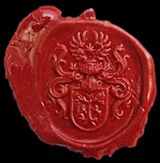
Together with the family's Waldschmidt, Schuler, Büsser, Münch, Beppler, Pausch, Krafft and Crato, the Macrander family belongs to the old Wetzlar family's that every "real" born resident of Wetzlar can find in his pedigree.
(Source: "Hessische Familienkunde", part 1, section 1, page 26: "5. Weitere Verwandtschaftsbeziehungen zu Lotte")
(Source: "Hessische Familienkunde", part 1, section 1, page 26: "5. Weitere Verwandtschaftsbeziehungen zu Lotte")
Because of the fact that the origin of the name Macrander was not clear and also too rare not to presume a bond between all namesakes, my curiosity was awoken. One encounters the name Macrander with several spellings, such as MacRander, Marcrander, Makrander, Markrander, Macklander, Maclander, Machlander, Mercander, McCrander and Maekrander. In most cases this is the consequence of wrong spelling in the past. In most cases, but not always. For example, the name Macklander and McLander also occurs in Scotland around the year 1650 and 1800. It seems unlikely that these families are connected to the Macrander family.
The Macranders are originally not - what could be assumed because of the prefix "Mac"- of Scottish, but of German origin. The Macrander family has her roots in Prussia (Germany). From Hessen and Rheinland to be more exact. Especially the city of Wetzlar has a prominent place in our family history. Many Macranders were born and raised in Wetzlar. The German historian Prof. Dr. Hans-Werner Hahn wrote in his book "Altständisches Bürgertum zwischen Beharrung und Wandel - Wetzlar 1689-1870" about the family Macrander as a "Ratsfamilie” (family of councilmen). For instance, Philips Josias Macrander (*1629-†1719) was part of the patriciate (the administrative elite) of the city of Wetzlar. He was even mayor of the city, twice (1682 & 1700). At that time (the 17th century) Wetzlar was a "Reichstadt" (free imperial city) and chair of the "Reichskammergericht" (Imperial Chamber Court).
The Macranders are originally not - what could be assumed because of the prefix "Mac"- of Scottish, but of German origin. The Macrander family has her roots in Prussia (Germany). From Hessen and Rheinland to be more exact. Especially the city of Wetzlar has a prominent place in our family history. Many Macranders were born and raised in Wetzlar. The German historian Prof. Dr. Hans-Werner Hahn wrote in his book "Altständisches Bürgertum zwischen Beharrung und Wandel - Wetzlar 1689-1870" about the family Macrander as a "Ratsfamilie” (family of councilmen). For instance, Philips Josias Macrander (*1629-†1719) was part of the patriciate (the administrative elite) of the city of Wetzlar. He was even mayor of the city, twice (1682 & 1700). At that time (the 17th century) Wetzlar was a "Reichstadt" (free imperial city) and chair of the "Reichskammergericht" (Imperial Chamber Court).
(Free imperial city of Wetzlar, 1655)


The current spread of Macranders worldwide
Nowadays the most of the Macranders are living mainly in the Netherlands and North America. A single Macrander lives in Canada (emigrated from the Netherlands in the 50s of the last century) and Brazil (fled from Germany because of the rise of Nazism just before world war 2, elsewhere on this website the story).
The original German Macranders are nearly extinct. Only 1 family is originally German and lives in Otterndorf, Niedersachsen. The other Macrander residents in Germany are all from the Dutch branch. These Macranders 'returned' to 'die Heimat' (the homeland) and can in fact be considered as (delayed) 'returnees'.
As already mentioned, the name Macrander is very rare. In the Netherlands in 1947, the name occured 41 times and in 2007
not much more, namely 47 times. (Source: Nederlandse Familienamenbank, Meertens Instituut: http://www.meertens.knaw.nl/nfb)
In Germany in 2008, the name occurs 18 times in the phone books, which should be noted here that also the in-laws are listed and that most German Macranders originate from the Netherlands, thus there is a certain overlap (doubles) with Dutch figures. In reality, there will be less German namesakes. (Source: www.verwandt.de/karten)
In North America, the name occurs 147 times in year 2000. The overview of this census only mentions the surnames occurring 100 or more times (meaning: at least 100 namesakes). In the census of 1990, the name does not occur. (Source: Census 2000, http://www.census.gov)
In Brazil 5 namesakes and in UK 1.
According to another table in 2014, the status in each country is as follows:
Canada: 5
USA: 217
Brazil: 3
Netherlands: 58
Germany: 3
(Source: http://forebears.co.uk/surnames/macrander)
Nowadays the most of the Macranders are living mainly in the Netherlands and North America. A single Macrander lives in Canada (emigrated from the Netherlands in the 50s of the last century) and Brazil (fled from Germany because of the rise of Nazism just before world war 2, elsewhere on this website the story).
The original German Macranders are nearly extinct. Only 1 family is originally German and lives in Otterndorf, Niedersachsen. The other Macrander residents in Germany are all from the Dutch branch. These Macranders 'returned' to 'die Heimat' (the homeland) and can in fact be considered as (delayed) 'returnees'.
As already mentioned, the name Macrander is very rare. In the Netherlands in 1947, the name occured 41 times and in 2007
not much more, namely 47 times. (Source: Nederlandse Familienamenbank, Meertens Instituut: http://www.meertens.knaw.nl/nfb)
In Germany in 2008, the name occurs 18 times in the phone books, which should be noted here that also the in-laws are listed and that most German Macranders originate from the Netherlands, thus there is a certain overlap (doubles) with Dutch figures. In reality, there will be less German namesakes. (Source: www.verwandt.de/karten)
In North America, the name occurs 147 times in year 2000. The overview of this census only mentions the surnames occurring 100 or more times (meaning: at least 100 namesakes). In the census of 1990, the name does not occur. (Source: Census 2000, http://www.census.gov)
In Brazil 5 namesakes and in UK 1.
According to another table in 2014, the status in each country is as follows:
Canada: 5
USA: 217
Brazil: 3
Netherlands: 58
Germany: 3
(Source: http://forebears.co.uk/surnames/macrander)
(Schematic rendering of the connection of the Macranders and Marcranders nowadays)
How are all the today living Macranders / Marcranders actually related to each other?
Today there are 6 different Macrander/Marcrander lineages, which all descent from 3 sons of Councilman/Mayor Philips Josias (Josias) Macrander (*1629-†1719) from Wetzlar, Germany.
Josias Macrander had 13 children in total: 5 sons, 7 daughters and 1 unknown child. This common ancestor of the 6 different Macrander/Marcrander lineages is going ± 400 years backwards in time .
Between the 2 North American and the Brazilian Macrander lineages there are just ± 200 years. Their common ancestor is Johannes Macrander (*1785-†1860) from Wetzlar.
Today there are 6 different Macrander/Marcrander lineages, which all descent from 3 sons of Councilman/Mayor Philips Josias (Josias) Macrander (*1629-†1719) from Wetzlar, Germany.
Josias Macrander had 13 children in total: 5 sons, 7 daughters and 1 unknown child. This common ancestor of the 6 different Macrander/Marcrander lineages is going ± 400 years backwards in time .
Between the 2 North American and the Brazilian Macrander lineages there are just ± 200 years. Their common ancestor is Johannes Macrander (*1785-†1860) from Wetzlar.


.
[Click on image to enlarge]





(Arms of Waldeck)
(Arms of Wetzlar)
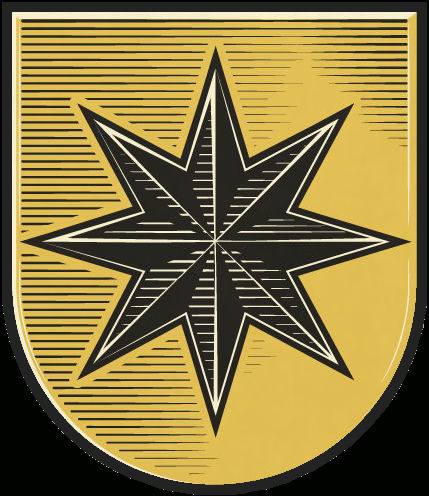
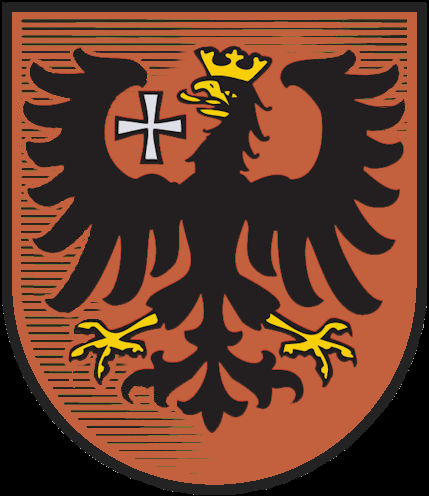
- Home
- History
- Origin of the name Macrander
- Origin of the name Langemann
- 1500s: Councilman Arnold Langemann
- 1500s: Magister Josias Macrander
- 1600s: Organ builder Joh. Friedr. Macrander
- 1700s: The first Macranders in the Netherlands
- 1800s: The first Macranders in the USA
- 1900s: The first Macranders in Brazil
- Occupations & Functions 1500s till 1700s
- Family tree
- Coats of Arms
- Images
- Overview
- Documents
- Photos Brazil
- Photos Germany
- Photos Netherlands
- Stephanus Macrander (*1852-†1932)
- > Frans Macrander (*1887-†1962)
- > Bertus Macander (*1889†1967)
- > Gerrit Macrander (*1891-†1986)
- > Louis Macrander (*1893†1964)
- > Theo Macrander (*1895†1962)
- > Wim Macrander (*1897†1974)
- > Anna Macrander (*1899†1994)
- > Dicky Macrander (*1901-†)
- > Stefaan Macrander (*1904-†1974)
- Family announcements etc.
- Photos USA
- John Albert Macrander (*1843-†1921)
- > Charles Oscar Macrander (*1893-†1970)
- >> Gordon Chester Macrander (*1915-†1983)
- John Macrander (*1819-†1910)
- > William Thomas Macrander (*1860-†1923)
- >> Eva Lena Macrander (*1882-†1914)
- >> Maude Olive Macrander (*1885-†)
- >> Bertha Ellen Macrander (*188X-†)
- >> Charles Orville Macrander (*1894-†1978)
- > John David Macrander (*1863-†1951)
- >> Wayne Orle Macrander (*1895-†1954)
- >> Josiah Don Macrander (*1897-†)
- >> Theodore Zed. Macrander (*1902-†1989)
- >> Lawrence Carol Macrander (*1905-†1994)
- > George Oliver Macrander (*1865-†1931)
- >> Zerah Todd Macrander (*1897-†1959)
- Contact
- Guestbook
- News/Links


